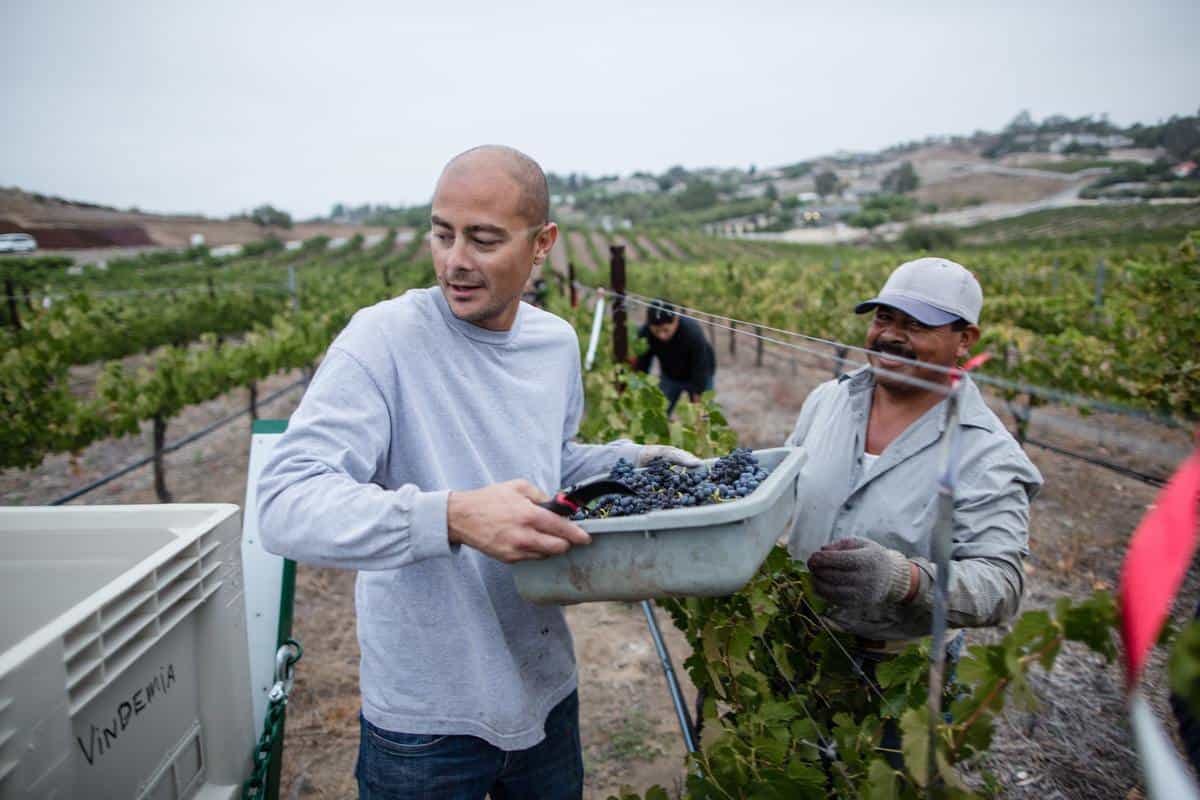Prime Minister Scott Morrison’s office yesterday announced that from December 1, Australia would reopen its international borders to eligible visa holders, including working holiday makers and international skilled workers.
While the announcement is expected to ease the pressure on many of the Australian SMEs that have struggled to find staff over the past two years, it is particularly important for agribusinesses.
Borders reopen to agricultural labour
The anticipated announcement was welcomed by The National Farmers Federation (NFF) as a step in the right direction to help agricultural businesses suffering from a shortage of skilled and unskilled labour.
NFF CEO Tony Mahar said, “The controlled and COVID-safe return of working holiday makers to Australia is something the NFF has advocated for more than 12 months. It is relieving to see those calls have finally been answered.
“It’s a fantastic outcome for the sector and the farming communities within it.”
Under yesterday’s announcement, eligible visa holders will be able to come into the country without needing to apply for a travel exemption. Under the arrangement for travellers to enter the country, they must:
- Be fully vaccinated with a completed dosage of a vaccine approved or recognised by Australia’s Therapeutic Goods Administration (TGA)
- Hold a valid visa for one of the eligible visa subclasses
- Provide proof of their vaccination status
- Present a negative COVID-19 Polymerase Chain Reaction (PCR) test taken within three days of departure.
Eligible visa holders include skilled and student cohorts and humanitarian, working holiday makers and provisional family visa holders.
Agricultural labour shortage at crisis point
When borders closed in early 2020, the vital supply of holidaymakers working on Australian farms dried up. Australia’s agricultural sector relies on this highly mobile and seasonal group of workers to fill the gaps in its workforce.
“Overseas workers, including working holiday makers and skilled visa holders, are critical to the entire sector. Overseas workers not only milk our cows, strip the crops and care for livestock; they are vital to regional economies and communities, and their contribution has been sorely missed,” said Mr Mahar.
The past 18 – 24 months have been incredibly hard on Australia’s farmers. International border closures saw the proportion of working holiday makers providing seasonal work on fruit and vegetable farms drop significantly.
According to the CSIRO, in 2019, around 63,000 casual and contract labourers received visas to work on horticultural farms during the peak of the harvest season. By contrast, in 2020, the supply of overseas labour declined significantly, and working holidaymakers and seasonal worker visas fell by 48 per cent.
NFF estimates indicate the national horticultural sector alone was short by approximately 16,000 workers this year. With nowhere to turn, the industry reached a point where growers could not harvest their crops and risked losing millions of dollars worth of production.
NFF President Fiona Simson said, “Farmers must have a secure and reliable supply of workers to make sure they can look after animals, get the crop off trees and out of the ground as we work towards Christmas. As we see borders opening up, so too, are the retail and tourism markets. We simply must do better in the workplace arena.”
Mr Mahar noted that migrant workers play a larger role in rural economies than just providing labour. He said, “Migrant workers play a substantial role in boosting other regional businesses and economies beyond agriculture. They eat at the local café; they shop from the family-owned stores.
Prior attempts to solve shortages
When international travel stopped, long term issues in Australia’s agricultural workforce turned into a crisis. While farmers suffered, politicians scrabbled to find solutions to the labour shortages.
The Agricultural Workforce Visa (Ag Visa), announced by Agriculture Minister David Littleproud earlier in the year, is one of many tools designed to address the exacerbated labour shortage facing many rural businesses across the country. The Visa allowed skilled agriculture labourers to enter the country and quarantine, while other Visa classes remained locked out.
Another attempt to fill the hole in Australia’s agriculture workforce is the Pacific Labour Scheme (PLS), which the government expanded because of the pandemic. The scheme allows Pacific and Timorese workers to take up jobs in rural and regional Australia with approved employers who have been unable to find enough suitable Australians to fill vacancies in their businesses.
However, an underlying lack of workers had plagued the agricultural sector even before the pandemic. The NFF and other organisations, such as the CSIRO, have long called for action on the issue.
The CRISO writes, “Even before COVID-19 hit, labour availability in agriculture had been a significant challenge, including resolving shortages and designing safe working conditions. In Australia, a patchwork of visa programs, missing or incomplete labour statistics and a general ‘just-in-time’ approach to labour sourcing has long created challenges for agribusinesses at every stage along the supply chain.
“Horticulture has been the hardest hit by labour shortages. Horticulture in Australia is the third-largest and fastest-growing sector in agriculture, and over 95 per cent of its labour force is casual.”
The NFF said in a statement, “The NFF has, for many years now, led the charge on measures to assist in addressing the labour challenges. Public calls for greater enforcement and compliance support for both employers and workers, stronger engagement with the Fair Work Ombudsman and participation in their industry reference groups have been on the top of that list.”
Despite the long term issues, the NFF has received the news as a welcome step in the right direction in looking out for Australian agribusiness.
Mr Mahar said, “We welcome a balanced approach to the public health risk. There must be a priority to ensure that it is done safely, and I commend the government’s approach.”
Read more:Australian workers shortage reaches crisis point: What SMEs can do
Read more: International Borders: Ai Group says it’s time for Australia to open up
Keep up to date with our stories on LinkedIn, Twitter, Facebook and Instagram

